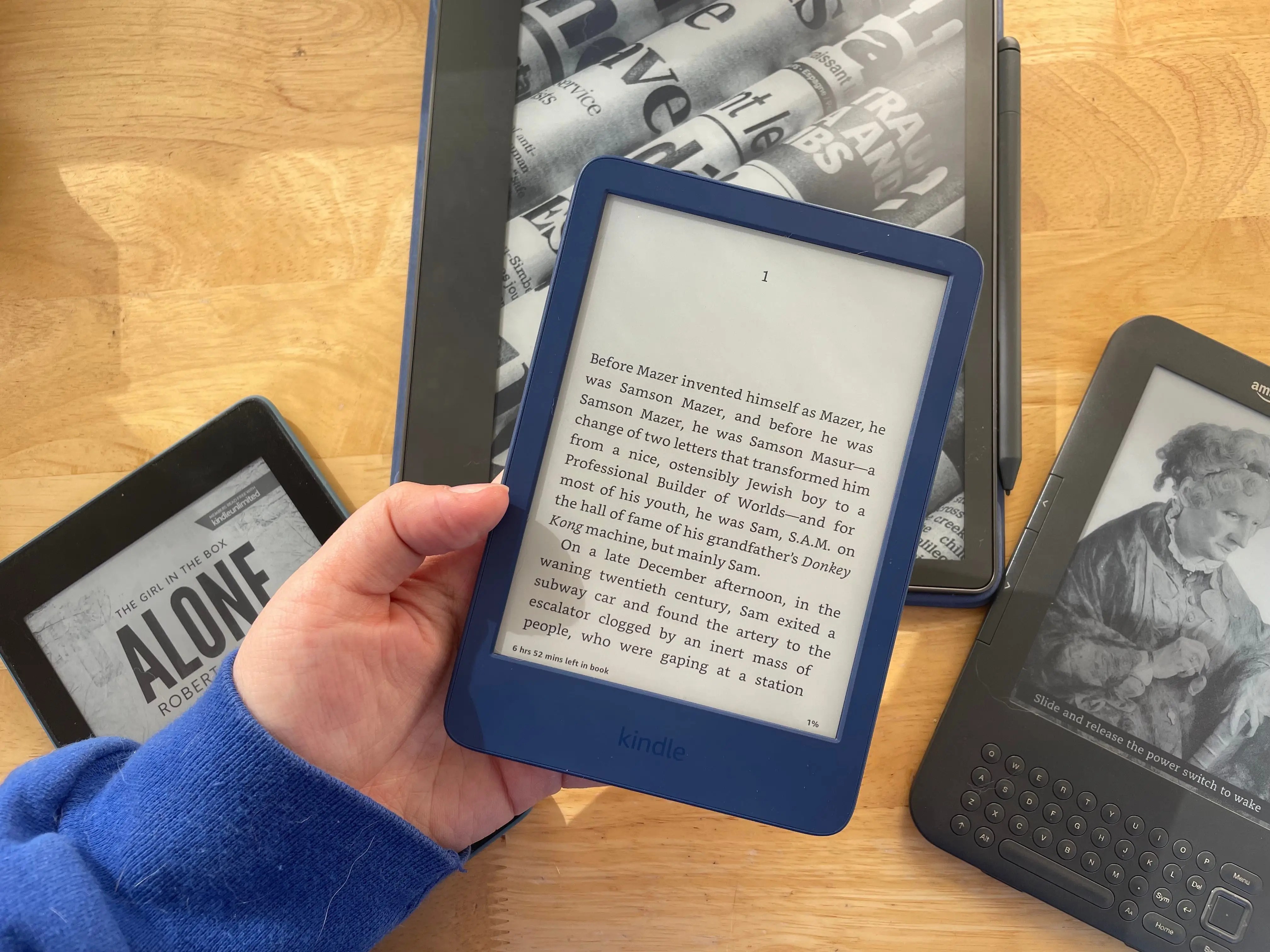Literature has the power to transport individuals to different worlds, evoke emotions, and provoke thoughts. It is a medium that connects the writer with the reader, creating a bond that transcends time and space. But who exactly is the reader? What role do they play in the literary landscape? Understanding the reader is crucial to appreciating the art of writing and the significance of literature in our lives.
In this article, we will delve deeper into the concept of the reader. We will explore their characteristics, preferences, and the impact they have on the literary world. Whether they are casual readers who indulge in bestsellers or avid bibliophiles who seek out hidden gems, readers are an essential part of the literary ecosystem. As we navigate through the various aspects of the reader, we will uncover the influence they wield in shaping authors' works and the publishing industry.
Moreover, we will discuss the evolution of the reader in the digital age, as e-books and audiobooks have transformed the way literature is consumed. The accessibility of literature has broadened the audience, but has it changed the essence of what it means to be a reader? Join us on this journey as we explore the multifaceted nature of the reader and their undeniable significance in the world of literature.
Who is the Reader?
To understand the reader, we must first define who they are. A reader can be anyone who engages with written material, but their motivations, preferences, and behaviors can vary widely. From casual readers who enjoy a good beach novel to dedicated literary critics who analyze texts in-depth, the spectrum of readers is vast. Here are some key characteristics that define a reader:
- Engagement: Readers actively engage with the text, interpreting and reflecting upon it.
- Diversity: Readers come from various backgrounds, cultures, and age groups, each bringing their unique perspectives.
- Preferences: Different readers have distinct tastes, influencing the genres and authors they gravitate toward.
- Purpose: Readers may seek entertainment, knowledge, or emotional connection, shaping their reading choices.
What Are the Different Types of Readers?
Readers can be categorized based on their reading habits and preferences. Here are a few common types:
- The Casual Reader: Enjoys light reading and popular genres.
- The Avid Reader: Reads frequently and explores diverse genres.
- The Academic Reader: Engages with scholarly texts and literature for research purposes.
- The Critical Reader: Analyzes texts critically, often providing insights and critiques.
How Do Readers Influence Authors and the Publishing Industry?
The relationship between the reader and the author is symbiotic. Readers provide feedback, reviews, and sales that can make or break a book's success. Authors often tailor their work to meet the expectations of their readers, creating a dialogue that influences the direction of literature. Furthermore, the publishing industry relies heavily on reader preferences to determine which books to promote and distribute. In essence, readers wield significant power in shaping literary trends and the careers of authors.
What Has Changed in the Digital Age?
The advent of technology has revolutionized the way readers consume literature. E-books and audiobooks have made literature more accessible, allowing readers to explore a vast array of titles at their fingertips. However, this shift has also raised questions about the nature of reading itself:
- Is the experience of reading an e-book different from a physical book?
- Do audiobooks count as reading, and how does this impact comprehension?
- Has the rise of social media influenced how readers discover and discuss books?
Are Readers More Diverse Now Than Ever?
With the rise of global connectivity and online platforms, readers today are more diverse than ever. This diversity is reflected in the types of stories being told and the voices being amplified. Readers can now access literature from different cultures, backgrounds, and perspectives, enriching their understanding of the world. This inclusivity leads to a more vibrant literary landscape, where the reader's identity plays a crucial role in shaping their reading experience.
What Role Does Community Play in the Reader's Experience?
Community can significantly enhance the reading experience. Book clubs, online forums, and social media groups allow readers to share their thoughts, recommendations, and insights. This sense of belonging fosters a deeper connection to literature and encourages readers to explore new genres and authors. Additionally, community discussions can lead to broader conversations about themes, representation, and the societal impacts of literature.
What Is the Future of the Reader?
As technology continues to evolve, so too will the experience of the reader. The rise of virtual reality and interactive storytelling could reshape how literature is consumed. However, the core essence of reading—engagement, interpretation, and emotional connection—will remain fundamental. The reader will continue to be a pivotal force in the literary world, influencing the creation and appreciation of literature. Ultimately, the journey of the reader is one of exploration, discovery, and connection, ensuring that literature remains a vital part of our shared human experience.
In conclusion, the reader is not merely a passive consumer of text; they are an active participant in the literary journey. By understanding the complexities and nuances of the reader, we can appreciate the profound impact they have on literature and the world around us. So, who is the reader? The answer lies in the diverse, vibrant tapestry of individuals who engage with the written word, each contributing their unique voice to the ongoing story of literature.
You Might Also Like
Lamar Jackson's Wife: The Woman Behind The SuperstarDiscovering Bruno Mars' Son: A Glimpse Into The Future Star
Unveiling The Mystery: Who Is Tom Glynn-Carney Dating?
Unveiling The Wealth: A Deep Dive Into Alexis Bellino's Net Worth
Unveiling The Enigma Of Tiatanaka: A Deep Dive Into Her Life And Legacy
Article Recommendations


